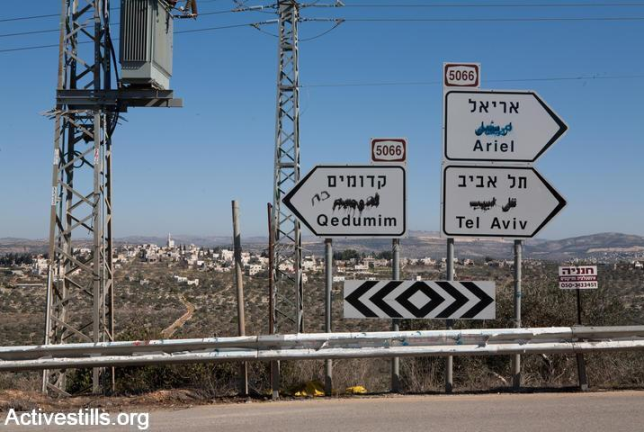The Knesset commemorated on Tuesday, July 11, Arabic Language Day – an initiative by Hadash MK Dr. Yousef Jabareen of the Joint List – for the second year in a row. That the MK who came up with the idea of dedicating a day to discuss promoting the Arabic language also heads a lobby for promoting coexistence between Jews and Arabs should come as no surprise. Jabareen understands that the threat to Arabic’s official status has a direct impact on the possibility of promoting coexistence between Jews and Arabs.
Eliminating Arabic’s status as an official language as is being proposed in a draft of a bill recently approved by the Ministerial Committee on Legislation would constitute “another Nakba (catastrophe) for Arabs,” MK Jabareen said. “It will be the Nakba of our language,” he said, using the Arabic term that refers to the mass eviction of Palestinians during the 1948 War. “It would increase the degradation of Arabic in the public sphere and threaten its ultimate disappearance from the public sphere, affecting both our collective identity and status,” Jabareen added.
MK Jabareen made his remarks during the commemoration of Arabic Language Day in the Knesset, which he organized in order to combat the bill and strengthen the status of the Arabic language together with organizations seeking to advance equality, including Sikkuy, the Abraham Fund and Mosawa.
As part of the day’s events, the Knesset education committee discussed how Arabic is taught in Jewish schools and the economics committee’s subcommittee on public transportation addressed issues related to posting signs in Arabic. The main event was a roundtable discussion of MKs and organizations representatives on “language, identity, and equality.”
Since the founding of the State of Israel, Arabic has formally held the status of one of the country’s three official languages, though in practice it is not used equally with Hebrew or English, noted Dr. Yonatan (Yoni) Mendel, director of the Center for Jewish-Arab relations at the Van Leer Institute in Jerusalem. Instead, Arabic “is treated as inferior,” he said. Mendel added: “English is a mandatory subject for school matriculation, while Arabic is not mandatory. Many official services are not provided in Arabic nor are many official websites [translated to Arabic]. It is official on paper only. Israel understands its being official only in a narrow sense. Its status is fragile and weak.”
Rescinding Arabic’s official status might exacerbate the problem of government ministries not using the language or having it on their websites, Mendel said. “But its worst implications are political and moral. For Arabs the erasure of Arabic will be synonymous to erasing their status as equal citizens. They are liable to understand such a measure as a step towards taking away their citizenship rights. It will not contribute to relations between Jews and Arabs.”
Labor MK Ksenia Svetlova addressed the roundtable discussion in fluent Modern Standard Arabic, which she learned 20 years ago as a student at the Hebrew University of Jerusalem. She recalled being asked by a university staffer at the time why she did not study a European language instead. “We are in the Middle East; all the neighbors speak Arabic, not Italian. The goal is that each child speak the two languages. This will advance peace,” she said. Referring to Arabic literary luminaries, Svetlova added: “It is not the language of terrorism; it is the language of love and culture; the language of Yusuf Idris, Najib Mahfouz, Emile Habibi and Mahmoud Darwish.”
Far-right MK Oren Hazan (Likud), who supports ending Arabic’s official status, told The Jerusalem Post there is room for only one official language – Hebrew. “The State of Israel is the state of the Jewish people and Hebrew has to be safeguarded as the only official language.”
Related:



